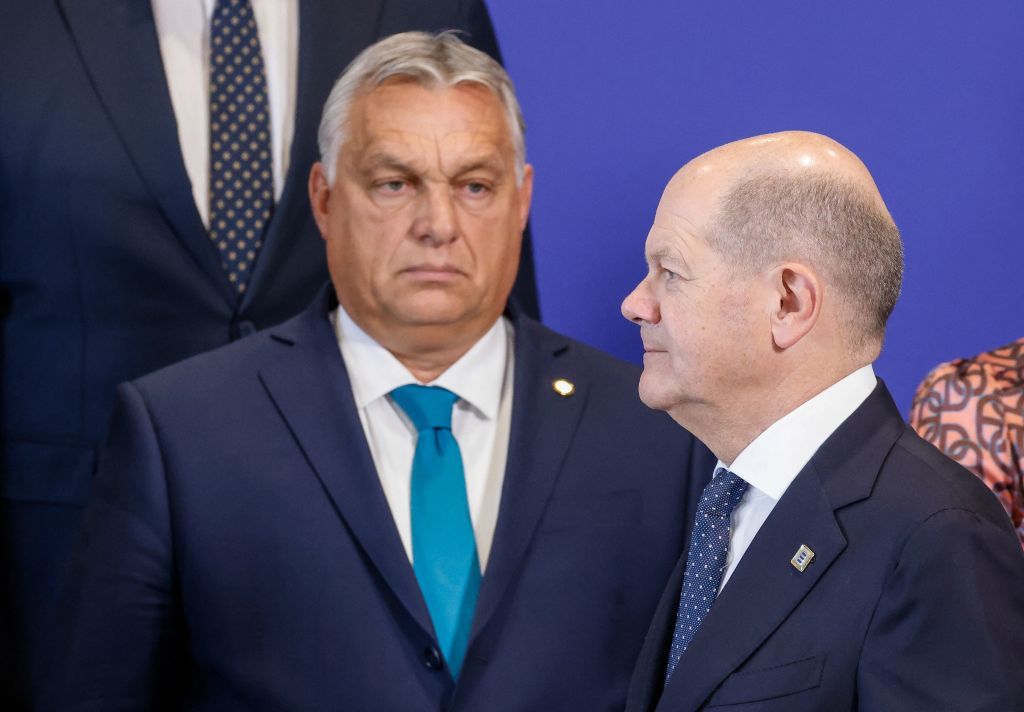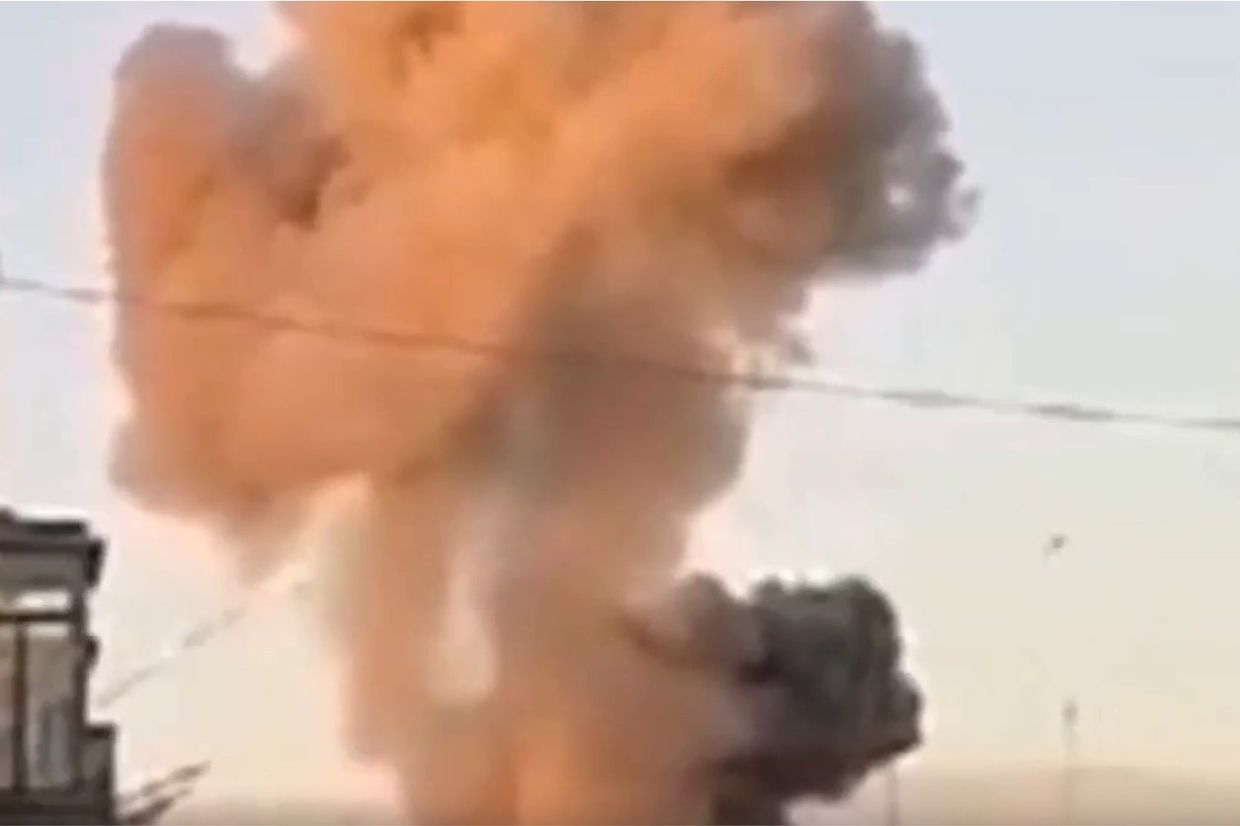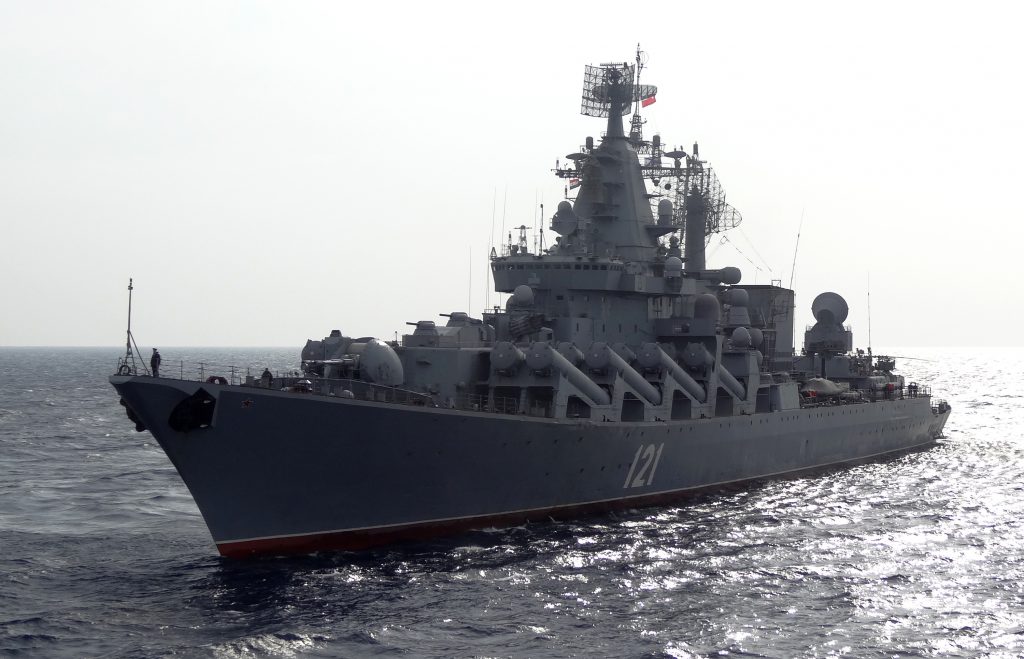Ukraine war latest: EU leaders agree to $54 billion funding for Kyiv; Russian ship sunk near occupied Crimea

Key developments on Feb. 1:
- All 27 EU leaders agree on 50 billion euro ($54 billion) aid package for Ukraine
- Military intelligence: Russian missile ship sunk off occupied Crimea.
- Foreign volunteers killed by Russian attack in Kherson
- White House won't discuss separating aid to Ukraine from security bill
- China cautions Ukraine over inclusion of Chinese companies in 'sponsors of war' list
All 27 leaders of EU member states agreed on an additional 50 billion euro ($54 billion) support package for Ukraine within the EU budget, European Council President Charles Michel announced on Feb. 1.
The crucial funding, known as the Ukraine Facility, was blocked by Hungarian Prime Minister Viktor Orban.
"It is very important that the decision was made by all 27 leaders, which once again proves strong EU unity," President Volodymyr Zelensky reacted to the news on X.
Orban said he agreed after negotiations ensured there would be a control mechanism in place that would ensure that resources would not be available to Ukraine "for too long and without control."
Orban also said that he ensured that EU funds for Hungary, which the European Commission has frozen due to concerns with the country's fight against corruption and lack of transparency in public procurement "will not end up in Ukraine."
Economy Minister Yuliia Svyrydenko said the fact that the EU managed to reach an agreement is "a good signal for further steps for Ukraine's accession to the EU, no matter the challenges and difficult issues we face."
The European Parliament must then adopt the Ukraine Facility regulation during the plenary session scheduled for Feb. 26-29, Svyrydenko said.
Military intelligence: Russian missile ship sunk near occupied Crimea
Ukraine's military intelligence said on Feb. 1 that its operatives sunk a Russian Tarantul-class Ivanovets missile corvette from the Black Sea Fleet off the coast of occupied Crimea.
Ukraine's military intelligence released a video of a naval drone approaching a ship and an ensuing explosion. The accompanying message said that the Ivanovets received "direct hits to its hull" and was irreparably damaged, leading to its sinking.
Ukraine's military intelligence said that the ship costs approximately $60-70 million.
The Ivanovets was involved in live-fire exercises in the Black Sea in July 2023 after Russia withdrew from the Black Sea Grain Initiative and subsequently declared that all vessels sailing to Ukrainian ports would be considered military targets.
The alleged sinking of the Ivanovets comes just one month after the Russian landing ship Novocherkassk was hit by Ukrainian missiles while docked at Feodosia in occupied Crimea.
Foreign volunteers killed by Russian attack in Kherson
Two foreigners, both French citizens, were killed by a Russian attack on the town of Beryslav in Kherson Oblast, Governor Oleksandr Prokudin reported at 7:25 p.m. local time on Feb. 1.
Three more foreigners received minor injuries. Further information on the victims is not yet available.
According to the Prosecutor General's Office, the foreigners killed were civilian volunteers.
Beryslav is located nearly 100 kilometers north of the region's administrative center of Kherson. The town has experienced an onslaught of attacks from Russian forces over the past few days, resulting in at least three injuries.
The Kherson Oblast Military Administration reported that a 48-year-old woman in the town suffered an injury to her hand and lost a finger after drones dropped explosives on the area earlier today.
White House won't discuss separating aid to Ukraine from security bill
The White House won't discuss the possibility of separating aid for Ukraine into separate legislation from the national security bill currently being negotiated in Congress, White House Press Secretary Karine Jean-Pierre said on Feb. 1.
The announcement comes after U.S. House Speaker Mike Johnson reportedly told a group of Baltic political leaders that President Joe Biden's national security proposal that combines aid for Ukraine with border policy reform would likely be split up.
The funding request of over $110 billion, including around $61 billion for Ukraine, has been stuck in Congress since autumn 2023. Senate Republicans blocked the approval of the $61 billion in aid last month, largely over concerns the bill did not contain border security measures.
As a way to expedite the passage of aid for Ukraine, intensified border security measures were integrated into the aid deal. House Republicans, including Speaker Johnson, have stated that newly developed provisions are insufficient.
Johnson's other comments on Ukraine indicated that his concerns about the ability for new aid to be passed were not limited to border issues. Many Republicans have said they are categorically opposed to further aid for Ukraine, regardless of compromises on the border and immigration.
Earlier this month, U.S. National Security Council spokesperson John Kirby announced that the U.S. had run out of existing money for aid for Ukraine, and "there's no other magical pot to dip into" unless Congress passes a new funding package.
Reuters: China cautions Ukraine over inclusion of Chinese companies in 'sponsors of war' list
China warned Ukraine that the inclusion of 14 Chinese companies on Ukraine's "international sponsors of war" list could potentially harm relations between the two countries, Reuters reported on Feb. 1, citing unnamed Ukrainian sources.
The "international sponsors of war" list, created by Ukraine's National Agency on Corruption Prevention (NACP), is designed to be "a powerful reputational tool" to encourage the exit of international business from Russia and reduce Moscow's financial ability to continue its war against Ukraine, the NACP explains on its website.
There are almost 50 international companies on the list, with the largest number coming from China.
The warning came during a recent meeting between the Chinese ambassador to Ukraine and senior Ukrainian officials, Reuters said.
"The (Chinese) ambassador said that all this (international sponsors of war list) could have a negative impact on our relations," one of the sources told Reuters.
The source added that the ambassador did not issue any concrete threats or implications if the companies remained on the list but just offered his views on the issue.
Another source said that Beijing "could link the matter to Chinese purchases of Ukrainian grain." China was Ukraine's largest trade partner prior to the full-scale invasion, and the two countries have retained important economic ties.
Reuters said that the Chinese and Ukrainian foreign ministries did not respond to requests for comment, nor did the Chinese Embassy in Ukraine.















